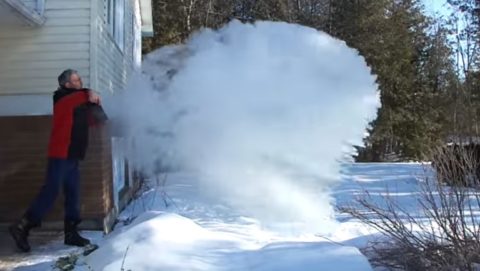UPDATE: Whether this proves to be right or wrong, my feature was the most well read article on Chemistry Views in 2017.
It sounds like #deceivedwisdom, but there are lots of reputable scientists who believe the Mpemba effect wherein hot water freezes faster than cold water is real. Youtube was replete with videos of people fling pans of boiling water into Canada’s freezing winter air to make clouds of “snow” and their friends with cold water attempting the same and simply getting a puddle in the snow. That effect is probably more to do with rapid evaporation and crystallisation than the Mpemba effect, but it makes for a great show nevertheless.

A couple of years ago, I believe The Royal Society of Chemistry (RSC) ran a competition to find an explanation for the actual Mpemba effect in which a container of warmer water placed in a freezer seems to become ice faster than a container of cold water. There have been very few validated, reproducible experiments on this surprisingly. And, in a recent Chemistry World, of which I only just got wind, a Cambridge team claims to have shown that there is no effect, it is deceived wisdom.
But…
I was sent a research paper that used calculations and vibrational spectroscopy to show that there are some sixteen different types of hydrogen bond present in water and that the distribution of types changes with temperature. Essentially, there being much tighter H-bonds (despite thermal agitation) in hotter water than cold. It is this distribution that means hotter water can nucleate more rapidly on cooling and form microscopic ice crystals that seed the liquid and allow it to freeze faster. You can read more details in my recent Chemistry Views article on this topic.
Incidentally, the snow-making videos are something of a distraction, this isn’t what Cremer and his team are talking about really, and they probably show rapid evaporation and crystallisation rather than the difference in ice formation caused by temperature difference.
What do you think? Is the Mpemba effect deceived wisdom or can different populations of hydrogen bonds persist and override the simple thermal effects and heat loss processes in water?
UPDATE: Dana Roth at Caltech just pointed to another paper that seems to support the existence of the effect and has a similar explanation re H bonds and nucleation.